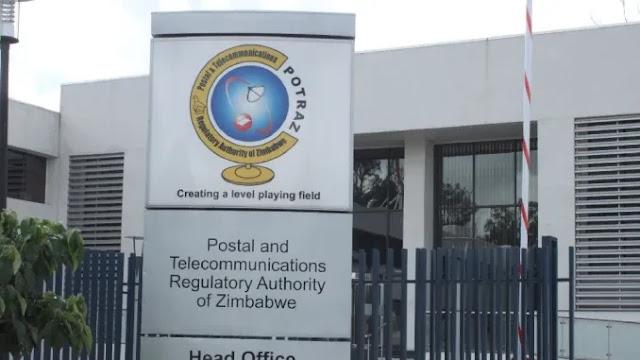News / Local
Potraz approves tariff increase for Zimbabwe telecoms sector
21 Oct 2024 at 13:01hrs |
0 Views

The Postal and Telecommunications Regulatory Authority of Zimbabwe (Potraz) has approved a tariff adjustment for local telecommunications companies in response to the recent devaluation of the Zimbabwean Gold (ZWG) currency. The new rates, which came into effect over the weekend, have been implemented by major operators Econet and NetOne, and reflect the challenging economic conditions facing the sector.
Both companies published notices to their customers, outlining the revised charges for voice calls, data, and SMS services. The new tariffs are as follows: ZWG 0.0177 per second for voice calls, ZWG 0.1660 per MB for data, and ZWG 0.2161 per SMS. Despite the changes in local currency pricing, US dollar tariffs remain unchanged.
Industry experts say the tariff increases were necessary for telecom operators to maintain service quality while ensuring their financial viability. An insider explained, "The combination of rising inflation and currency devaluation has drastically increased operational costs, making price increases inevitable."
The adjustments come on the heels of the Reserve Bank of Zimbabwe's (RBZ) decision to devalue the ZWG by 43% in September, part of broader efforts to stabilize the currency and curb inflation. While aimed at addressing macroeconomic imbalances, the devaluation has had a significant impact on sectors like telecommunications, which rely heavily on imported equipment and software, leading to skyrocketing service costs.
The telecom industry, despite being one of Zimbabwe's more resilient sectors, has faced multiple challenges over the years, including foreign currency shortages, power outages, local currency devaluation, and high inflation. The additional burden of the ZWG's depreciation has made it harder for operators to invest in new technologies and maintain the quality of service demanded by a rapidly evolving global technology landscape.
For customers, the new tariff adjustment means higher costs for communication services, but telecom operators stress that the increase is essential for them to continue delivering reliable services in the face of rising operational expenses.
Potraz's approval of the tariff adjustments signals the regulator's recognition of the economic pressures confronting the industry, with stakeholders now watching closely for further developments in the sector as Zimbabwe continues to navigate its broader economic challenges.
Both companies published notices to their customers, outlining the revised charges for voice calls, data, and SMS services. The new tariffs are as follows: ZWG 0.0177 per second for voice calls, ZWG 0.1660 per MB for data, and ZWG 0.2161 per SMS. Despite the changes in local currency pricing, US dollar tariffs remain unchanged.
Industry experts say the tariff increases were necessary for telecom operators to maintain service quality while ensuring their financial viability. An insider explained, "The combination of rising inflation and currency devaluation has drastically increased operational costs, making price increases inevitable."
The telecom industry, despite being one of Zimbabwe's more resilient sectors, has faced multiple challenges over the years, including foreign currency shortages, power outages, local currency devaluation, and high inflation. The additional burden of the ZWG's depreciation has made it harder for operators to invest in new technologies and maintain the quality of service demanded by a rapidly evolving global technology landscape.
For customers, the new tariff adjustment means higher costs for communication services, but telecom operators stress that the increase is essential for them to continue delivering reliable services in the face of rising operational expenses.
Potraz's approval of the tariff adjustments signals the regulator's recognition of the economic pressures confronting the industry, with stakeholders now watching closely for further developments in the sector as Zimbabwe continues to navigate its broader economic challenges.
Source - The Chronicle
Join the discussion
Loading comments…



































